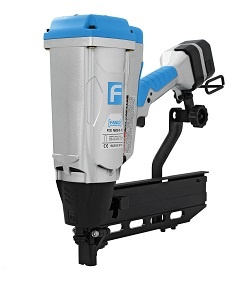
If this title sparked your interest, it’s probably because you don’t yet own a pneumatic tool. And why would that be? Because you’ve heard the very misconceptions we’re about to address! If you’ve always shied away from pneumatics because you just don’t trust them, it’s time we “clear the air” on air compressors and these tools.
- Pneumatic Tools are for Auto Shops. While pneumatics are very popular in automotive repair shops, it’s not because their function is limited to car repair. Mechanics like pneumatics because they are lightweight and run on air and they can hook up multiple types of tools to a single air compressor versus having a tangle of power cords laying around. While pneumatics require a compressor, they can be setup easily on any type of job site and run a multitude of tools.
- Compressed Air is more expensive than traditional electrical. This is one of the most common misconceptions we hear and it’s simply not true, if you’re working efficiently. Compressed air can exert force far more effectively than an electric tool, and to do this, your compressor requires a certain level of care. To use pneumatics efficiently, keep your compressor equipment clean and well maintained. Also, don’t leave your compressor idling when not in use. Finally, adjust the force to match the job at hand.
- Compressed Air is Impure or Unclean. Compressed air is actually pretty clean. If there are impurities, it’s likely a result of poorly maintained machinery, dirty tanks, or dirty hoses. The use of pneumatics overall is a very clean process. In most systems, compressed air can be kept free of contaminants with routine maintenance of the machinery and the surrounding areas. But avoid using those bursts of air to clean up your jobsite. That pressure is meant for tool operation, not like a can of compressed air you blow out a keyboard with. Using the air improperly could turn small particles into dangerous trajectories.
- You still need electricity to run your compressor, so might as well go electric. Along with our other myths, this one just isn’t true. If you’re putting up cattle fence out in your fields, you’d need a mighty long extension cord to use a pneumatic stapler. But pneumatics can be powered by gas too. The tool uses a gas fuel cell and a battery to drive it. This design, like the F70G 40-315 Fence Stapler offered by BECK America, gives you maximum mobility when hoses and compressors are cumbersome or impractical.
Let’s be clear, pneumatic tools are not right for every job, but make sure your choice is based on the proper features for the job at hand, not for a lack of understanding the tools available. Pneumatics can be lighter weight, more affordable, and safer overall on many jobsites over electric. If you want to learn more, download our white paper, “Benefits of Pneumatic vs. Traditional Tools” below.
.svg.png)

